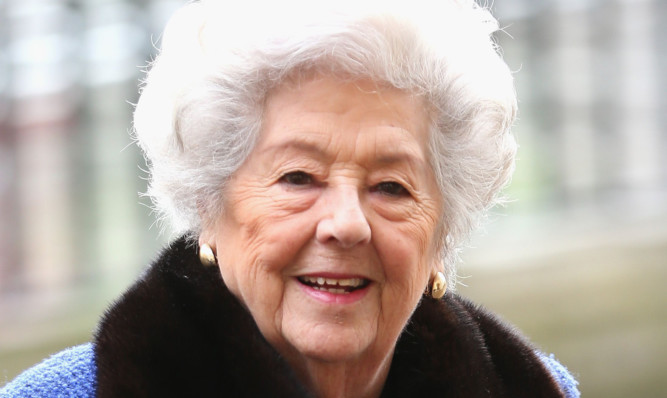Former Commons speaker Baroness Boothroyd has urged the Government to think again about plans for English votes for English laws (Evel), branding them a “recipe for discord”.
In a short Lords debate on the controversial scheme, Lady Boothroyd warned about the current Commons Speaker being pushed into the “political cockpit” by the change.
“This isn’t a run-of-the-mill controversy,” she said. “The proposal is a hybrid form of English devolution, new to our constitution, and it is being done by bypassing the statute book and amending the standing orders in the Commons. It simply will not do.”
Lady Boothroyd dismissed suggestions that the proposed changes would not impact on the Lords, insisting: “This is not the right way to proceed.”
She told peers: “Magna Carta gave us the right to oppose the arbitrary exercise of power and we must not shirk our responsibilities.
“If we fail, we say goodbye to our bicameral Parliament and undermine the union.”
Lady Boothroyd said she was troubled by the manner by which the Government was seeking to involve the Speaker in the new procedures.
There were cross-border issues involved and an English-only Bill needed to be defined.
“Pushing the Speaker into the political cockpit to determine and define legislation is the worst possible idea. It’s a recipe for discord and threatens both Houses.
“The Government needs to think again and do so sharply,” she said.
Lady Boothroyd’s warning came as peers from all sides called for a joint committee to examine the scheme.
Ministers have been forced to abandon plans to push through the changes to give England’s MPs a veto over English laws before the summer recess, postponing a vote on whether to go ahead with the amended standing orders until at least September.
Opening the debate, former Cabinet secretary and independent crossbencher Lord Butler of Brockwell said the plan was an important constitutional issue, not a simple technical change to standing orders.
It was the duty of Lords leader Baroness Stowell of Beeston to ensure peers could make a proper contribution to the debate through a joint committee.
For the Liberal Democrats, Lord Tyler agreed the issue was appropriate for debate by a joint committee, insisting there was a world of difference between giving English MPs a voice and a veto.
“This isn’t a minor issue for one end of this building to decide,” Lord Tyler said.
Tory former Scottish secretary Lord Forsyth of Drumlean said: “If you want English votes for English laws you need to have an English Parliament and I wish to retain a United Kingdom Parliament in this building.”
He said a joint committee of both Houses of Parliament, if not a constitutional convention, should look at the issue “before we end up playing into the hands of the nationalists, fragmenting the Union and ruining the UK Parliament.”
Former Commons clerk and independent crossbencher Lord Lisvane said a joint committee was the right way to consider a “fundamental constitutional problem”.
He too was concerned about the Speaker being drawn into decision-making, saying: “I see a possible hazard to article 9 of the Bill of Rights because for the first time a Speaker of the Commons is going to be asked to certify something which is a matter of law – whether it is within the legislative competence of devolved institutions to make provision for this or that.
“This is wholly different from Parliament Act or money Bill certifications.”
The Speaker and Parliamentary procedure would be “better protected” by ministerial certification, Lord Lisvane said.
Those arguing for the change to be made through legislation, rather than standing orders, were going down a “dangerous road”. Nothing would bring the courts into Parliament faster than making this arrangement “explicitly justiciable” through legislation, he warned.
